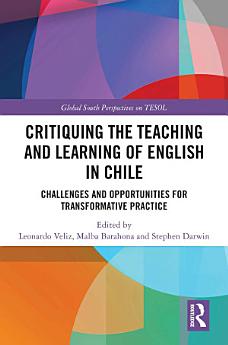Critiquing the Teaching and Learning of English in Chile: Challenges and Opportunities for Transformative Practice
About this ebook
Providing insights into English language teacher education and the pedagogical practices that teachers enact in diverse contexts, chapters delve into a critical scrutiny of prevalent issues in ELT education and explore new opportunities for innovation, reconsideration and reconceptualisation of policy and practice. Motivated by the drive for transformative, context-sensitive and culturally relevant practice, contributors critically engage with the socio-cultural and socio-political context of Chilean English language researchers, offering a systematic analysis of the profound effects of entrenched neoliberal ideologies in education, as well as how these act to influence and shape teaching practices, policies, and outcomes. In highlighting the inherent limitations and inequities perpetuated by neoliberal policies, contributors offer alternative perspectives and solutions designed to promote more equitable, inclusive, and socially just second language educational practices.
Providing a comprehensive examination of the intricate relationship between Chile's political history, socio-economic evolution, and the rise of English language education, this book will be of interest to scholars, researchers, and postgraduate students in the fields of applied linguistics, teaching and learning English as a foreign/second language, and initial English language teacher education. Policy makers working in ELT in the Chilean context may also find the volume of use.
About the author
Leonardo Veliz is an Associate Professor in Language, Literacy and Education at University of New England, Australia.
Malba Barahona is an Associate Professor in the Facultad de Educación at Pontificia Universidad Católica de Chile.
Stephen Darwin is an Associate Professor in the Facultad de Educación at Universidad Alberto Hurtado, Chile.






